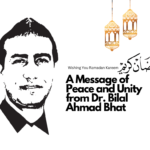Eid-ul-Fitr, also known as the Festival of Breaking the Fast, holds immense significance in the Islamic calendar. It marks the culmination of Ramadan, the holy month of fasting, prayer, and reflection for Muslims worldwide. In this blog post, we delve into the date, history, significance, and all you need to know about Eid-ul-Fitr and its vibrant celebrations.
Date of Eid-ul-Fitr 2024:
Eid-ul-Fitr is celebrated on the first day of Shawwal, the tenth month of the Islamic lunar calendar. The exact date varies each year as it is determined by the sighting of the new moon, signaling the end of Ramadan. In 2024, Eid-ul-Fitr is expected to fall on [insert date], subject to moon sighting.
History and Significance:
The history of Eid-ul-Fitr traces back to the time of Prophet Muhammad (peace be upon him) in the early days of Islam. It commemorates the spiritual journey of Ramadan, during which Muslims engage in fasting, prayer, self-discipline, and acts of charity. The significance of Eid-ul-Fitr lies in its celebration of faith, unity, gratitude, and the blessings of Allah (SWT).
The Festive Celebrations:
Eid-ul-Fitr is a joyous occasion filled with festivities, family gatherings, feasting, and expressions of gratitude. The day begins with the special Eid prayer, known as Salat al-Eid, performed in congregations at mosques or designated prayer grounds. Muslims dress in their finest attire, often new clothes, as a symbol of renewal and celebration.
After the prayer, families and friends come together to exchange greetings of “Eid Mubarak” and embrace each other with warmth and love. It is customary to give Zakat al-Fitr, a form of charity, before the Eid prayer to ensure that everyone can partake in the celebrations and enjoy a festive meal.
Delicious traditional dishes are prepared, and homes are adorned with decorations, lights, and sweet treats like dates and sweets. Gifts are exchanged, especially for children, adding to the spirit of generosity and joy.
Community spirit is at the heart of Eid-ul-Fitr, with many Muslims extending invitations to neighbors, friends, and those in need to join in the festivities. Sharing meals, offering hospitality, and spreading kindness are integral aspects of Eid celebrations, reflecting the values of compassion and unity upheld in Islam.
Cultural variations in Eid celebrations add color and diversity to the festivities, with different regions showcasing their unique traditions, music, dances, and culinary delights. Despite these variations, the essence of Eid-ul-Fitr remains consistent—a time of gratitude, forgiveness, reconciliation, and renewal of faith.
The Message of Eid-ul-Fitr:
Eid-ul-Fitr carries a profound message of faith, unity, and compassion. It reminds Muslims of the blessings of Ramadan, the importance of self-discipline, empathy towards others, and the value of community. The festival reinforces the bonds of brotherhood and sisterhood, transcending boundaries of race, nationality, and social status.
In a world filled with challenges and uncertainties, Eid-ul-Fitr serves as a beacon of hope, resilience, and positivity. It inspires individuals to strive for spiritual growth, strengthen their connection with Allah (SWT), and embody the teachings of Islam in their daily lives.
Conclusion:
As we anticipate the arrival of Eid-ul-Fitr 2024, let us embrace the spirit of joy, gratitude, and unity that defines this auspicious occasion. May the blessings of Allah (SWT) fill our hearts with peace, happiness, and prosperity. Eid Mubarak to all, celebrating the beauty of faith and diversity in our global community!




